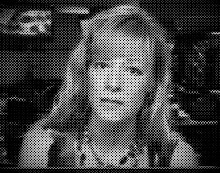
With the 2008 Presidential Election upon us, the media blasts the airwaves with cautionary tales about the failed ethics of the candidates. Extremely valid. The candidates, as members of elected representative government, agree to conduct themselves with a certain level of ethics. As the news reports show, living by them is not always so easy.
What we haven't heard so much about is media ethics.
The Society of Professional Journalists, a journalism organization dedicated to encouraging the free practice of journalism and stimulating high standards of ethical behavior, has nearly 10,000 members across the country. Writers, editors, and other news professionals voluntarily embrace the SPJ Code of Ethics. Here's a sample of the Code:
"Preamble. Members of the Society of Professional Journalists believe that public enlightenment is the forerunner of justice and the foundation of democracy. The duty of the journalist is to further those ends by seeking truth and providing a fair and comprehensive account of events and issues. Conscientious journalists from all media and specialties strive to serve the public with thoroughness and honesty. Professional integrity is the cornerstone of a journalist's credibility. Members of the Society share a dedication to ethical behavior and adopt this code to declare the Society's principles and standards of practice.
Seek Truth and Report It
Journalists should be honest, fair and courageous in gathering, reporting and interpreting information. Journalists should:
— Test the accuracy of information from all sources and exercise care to avoid inadvertent error. Deliberate distortion is never permissible.
— Diligently seek out subjects of news stories to give them the opportunity to respond to allegations of wrongdoing.
— Identify sources whenever feasible. The public is entitled to as much information as possible on sources' reliability.
— Always question sources’ motives before promising anonymity. Clarify conditions attached to any promise made in exchange for information. Keep promises.
— Make certain that headlines, news teases and promotional material, photos, video, audio, graphics, sound bites and quotations do not misrepresent. They should not oversimplify or highlight incidents out of context.
— Never distort the content of news photos or video. Image enhancement for technical clarity is always permissible. Label montages and photo illustrations.
— Avoid misleading re-enactments or staged news events. If re-enactment is necessary to tell a story, label it.
— Avoid undercover or other surreptitious methods of gathering information except when traditional open methods will not yield information vital to the public. Use of such methods should be explained as part of the story
— Never plagiarize.
— Tell the story of the diversity and magnitude of the human experience boldly, even when it is unpopular to do so.
— Examine their own cultural values and avoid imposing those values on others.
— Avoid stereotyping by race, gender, age, religion, ethnicity, geography, sexual orientation, disability, physical appearance or social status.
— Support the open exchange of views, even views they find repugnant.
— Give voice to the voiceless; official and unofficial sources of information can be equally valid.
— Distinguish between advocacy and news reporting. Analysis and commentary should be labeled and not misrepresent fact or context.
— Distinguish news from advertising and shun hybrids that blur the lines between the two.
— Recognize a special obligation to ensure that the public's business is conducted in the open and that government records are open to inspection."
Do your news programs meet this this test? Some of the cable news groups seem to blur the lines between advocacy reporting and news reporting. If you can tell the reporter's favorite candidate, you're watching advocacy reporting and commentary. This is simply the reporter's opinion, sometimes supported by fact. Sometimes not. Usually lots of hyperbole. Think Keith Olbermann, Bill O'Reilly. They can be fun to watch, entertaining, infuriating, informative. But always remember they are advocating.
As Bill-O explained last week about his college education: "The most interesting class I had was Persuasion, and I use a lot of the points I learned there on the air to try to get people to listen to you, and to make your point so that they understand it." See it? Advocating.
If you're getting fact without the personal opinion dominating the discussion, it's closer to straight news reporting. On the national stage, think Brian Williams, Katie Couric.
In this blog you will see a mix of advocacy reporting and news reporting. As a lawyer and citizen journalist, I often advocate for one position or another. It's not the 6 o'clock news here. Yet part of my goal is simply to educate citizens any side of the political spectrum. I will strive as a citizen journalist to follow the SPJ ethical guidelines, while seeking out the most ethical news organizations serving as our Fourth Branch of government.
Today's blog reports on the First Tenent of Ethics for Journalists. Watch for upcoming posts about the other three: Minimize Harm, Act Independently, and Be Accountable.
Photo Source: http://cemeteries.wordpress.com/2006/10/18/all-seeing-eye-eye-of-providence/
Source: The Society for Professional Journalists website: http://www.spj.org/ethicscode.asp (Sept. 13, 2008)
Source: Dennis Kleiman for TIME, http://www.time.com/time/magazine/article/0,9171,1840588,00.html (Sept. 11, 2008).
Subscribe to Kimberlie Ryan's Working Wellness






